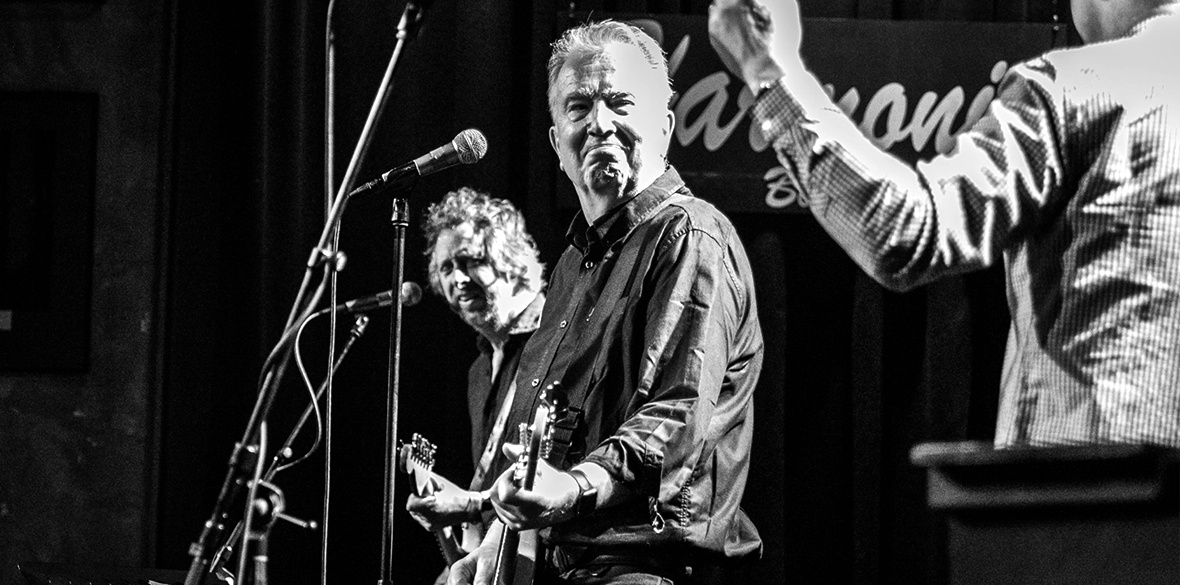This is the last article you can read this month
You can read more article this month
You can read more articles this month
Sorry your limit is up for this month
Reset on:
Please help support the Morning Star by subscribing here
TRB 2024
Voodoo Rooms, Edinburgh
WHEN he speaks, Tom Robinson brings the seasoned urbanity of the Radio 6 DJ to proceedings, full of self-deprecating charm and well crafted anecdote, but when he steps into the playlist of his first two albums, Power In The Darkness and TRB2, like a miracle, the snarling righteous punk of his 1970s self erupts undimmed and as devastatingly on message as ever.
If anything, the raspy half-sung half-howled timbre of his 74-year-old voice suits these distillations of anger even better than before and the effect is astonishing: you time-travel back to years in which Gay Liberation was radical and allied seamlessly to an anti-racist, anti-establishment movement, brimming with power.
It’s a salutary shot in the arm and a reminder that there was a time before identity politics crystallised and the only “identity” worth assuming was to be working class and confident in collective ability to change a world you hated. As a consequence, the call for solidarity implicit in Up Against The Wall, Blue Murder, Let my People Be or Days of Rage; the sheer threat of Long Hot Summer; and the eerie premonition of class warfare in The Winter Of ‘79 are as much of a wake-up call now as then. These are tight and belligerent arrangements with anthemic, sing-along choruses and lyrics lifted — it seems — from newsprint.
This is the soundtrack to years of weak Labour government and strong unions, and to reopen the time capsule right now is a relevant and political act more than repaid by its ecstatic reception, by the presence of Love Music Hate Racism, and by the explicit anti-Reform message that would never pass on the airwaves.
The curiosity comes when he revives later hits like Never Gonna Fall In Love Again (1979) and War Baby (1983) and you feel the capacity to contextualise and politicise the music diminishing in favour of narrow-focus gay themes, great as those songs are. Tom Robinson is the barometer of a changing culture, and few gigs immediately invite historical and political analysis like this one.
But the sheer joy with which the Scottish audience took to Sing If You’re Glad To Be Gay, bitterly sarcastic as it is, needed to be experienced to be believed. This is no plea for tolerance and understanding, but ferocious, aggressive solidarity. Written when homosexuality was still a criminal act in Scotland, the mighty hollering of an audience old enough to remember was a unique act of historical revenge, its rage entirely justified and cathartic, and an example to the under-50s.
Much more than a curiosity, and for a reminder of the dialectical class-literate songwriting that flourished amidst punk, this tour is unmissable.
On tour until October 23. For more information see: tomrobinson.com







